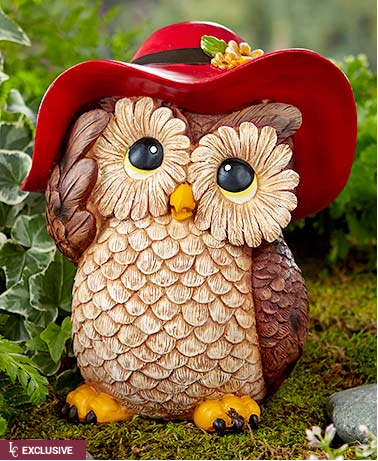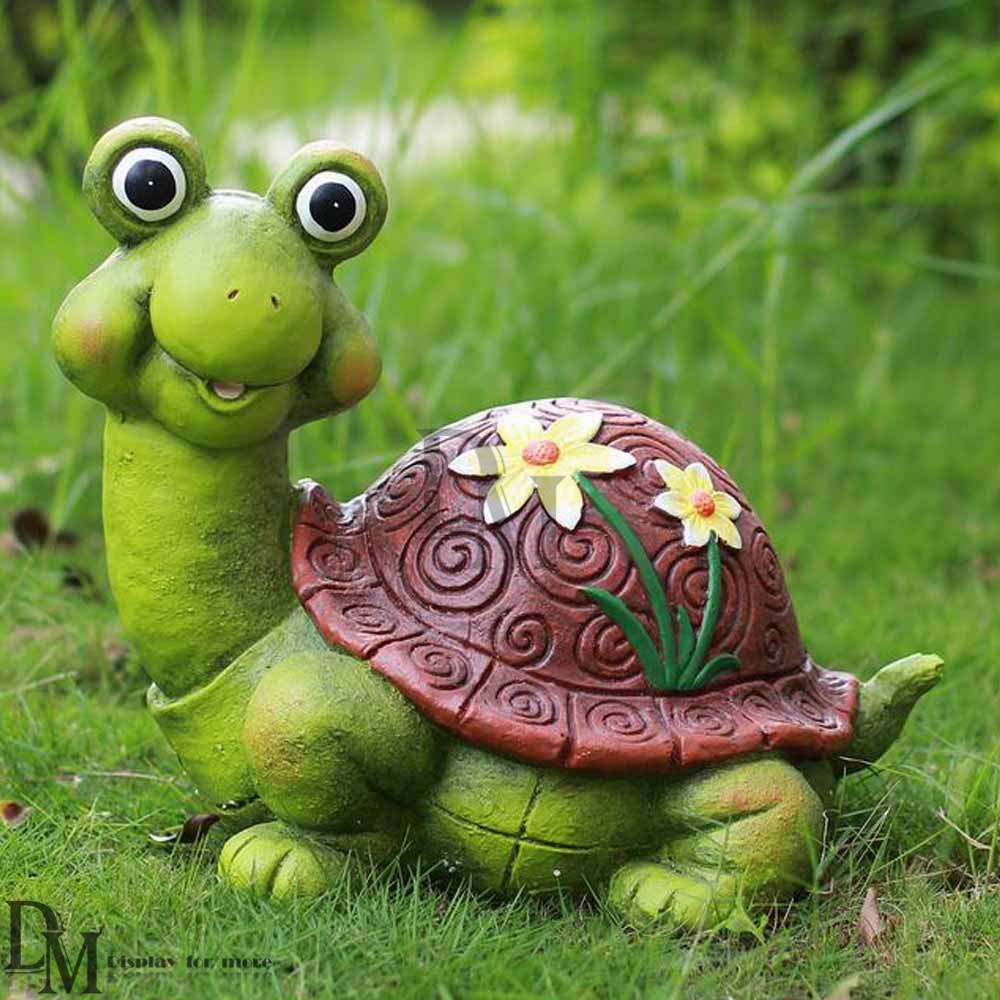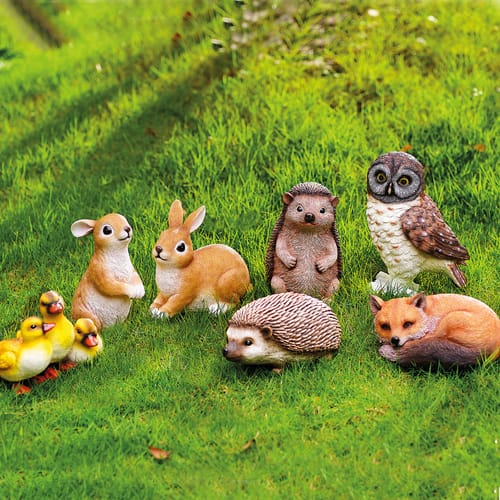Transforming your garden into a serene oasis can be as simple as adding a few charming decorative garden animals. These delightful accents not only enhance the aesthetic appeal of your outdoor space but also offer a whimsical touch that can reflect your personality and style. In this comprehensive guide, we’ll explore various types of decorative garden animals, their benefits, and how to choose the perfect pieces for your garden.
Why Choose Decorative Garden Animals?
Decorative garden animals serve various purposes beyond mere aesthetics. Here are some compelling reasons to consider them:
- Visual Appeal: They add character and charm to any garden.
- Personalization: Reflect your personality and interests through unique designs.
- Easy to Change: They can be easily swapped out to refresh your garden’s look.
- Wildlife Attraction: Some types can attract birds or other wildlife, enhancing the natural feel of your space.
Types of Decorative Garden Animals
There is a vast array of decorative garden animals available, each with its unique flair. Below are some popular categories:

1. Statues and Figurines
These can range from realistic representations of animals to whimsical designs. Statues are a staple in many gardens.
Material Choices
Statues are made from various materials:
- Stone: Durable and weather-resistant.
- Metal: Adds a modern touch; consider rusted finishes for a vintage vibe.
- Resin: Lightweight and versatile.
- Ceramic: Offers vibrant colors and intricate designs.

2. Garden Stakes
Garden stakes often feature colorful designs and stake easily into the ground. They can include butterflies, birds, or other fantastical creatures.
3. Hanging Decor
Hanging decorative items can add depth to your garden space. Consider items like hanging birds or whimsical lanterns shaped like animals.

Choosing the Right Decorative Garden Animals for Your Space
When selecting decorative garden animals, consider the following factors:

- Garden Theme: Ensure your choice complements existing elements in your garden.
- Size: Consider the scale of your garden; larger pieces can act as focal points, while smaller ones can be sprinkled throughout.
- Color Scheme: Choose colors that will enhance or contrast with your plants and flowers.
- Durability: Opt for materials that withstand your local climate.
Personal Touch from Experience
In my own garden, I’ve experimented with various animals, from sleek metal foxes to colorful ceramic frogs. The fox serves as a focal point amidst a sea of greens, while the frogs, residing among my flower beds, bring a playful touch. Each piece reflects a moment I cherish, reminding me of lazy summer days spent gardening with my kids.

Comparison Table: Types of Decorative Garden Animals
| Type | Material | Pros | Cons |
|---|---|---|---|
| Statues | Stone, Metal, Resin, Ceramic | Durable, Various styles | Can be heavy and difficult to move |
| Garden Stakes | Metal, Wood | Lightweight, Easy to reposition | May not withstand harsh weather |
| Hanging Decor | Wood, Metal, Plastic | Adds vertical interest, Unique designs | Can fade or wear out quickly |

Pros and Cons of Decorative Garden Animals
Pros
- Add visual interest and charm
- Inspire joy and creativity
- Encourage biodiversity if designed to attract wildlife
- Encourage mindfulness and relaxation

Cons
- Some materials may fade or deteriorate over time
- Can be targets for theft or vandalism
- Maintenance may be required (cleaning, sealing)
Placement Tips for Decorative Garden Animals
Where you place your decorative garden animals can significantly affect their impact. Here are some guidelines:
1. Focal Points
Position large statues or striking pieces at key spots in your garden to draw the eye.
2. Layering
Use smaller items amongst plants to create a layered effect, helping them blend seamlessly with the garden.
3. Height Variation
Mix heights, using taller pieces at the back and shorter ones in front to create depth.
Maintaining Your Decorative Garden Animals
Proper maintenance will extend the life of your garden decor. Here are some tips:
- Regular Cleaning: Dust and clean your pieces to keep them looking their best.
- Assess Damage: Check for any signs of wear or damage and perform repairs as needed.
- Seasonal Storage: Consider bringing delicate items indoors during harsh weather.
Frequently Asked Questions (FAQs)
What materials are best for decorative garden animals?
The best materials depend on your climate and personal style. Stone and metal are durable, while resin and ceramic provide more colorful designs.
How can I decorate my garden with these animals?
Consider your garden’s theme, choose pieces that complement existing flora, and pay attention to placement for maximum impact.
Are decorative garden animals safe for pets?
Most garden decor is safe, but always ensure that materials used are non-toxic and that there are no sharp edges.
Can I make my own decorative garden animals?
Absolutely! DIY projects can be rewarding and unique. Consider using clay, wood, or upcycled materials for a personal touch.
Where can I purchase decorative garden animals?
These items can be found at garden centers, home improvement stores, and online retailers, providing a wide selection to choose from.
Conclusion
Decorative garden animals are more than just decor; they embody personality, creativity, and the joy of gardening. By carefully selecting pieces that resonate with you and complement your outdoor space, you can create a magical environment that’s truly your own. Whether you opt for elegant statues, vibrant garden stakes, or whimsical hanging decor, these charming additions will transform your garden into an enchanting retreat.